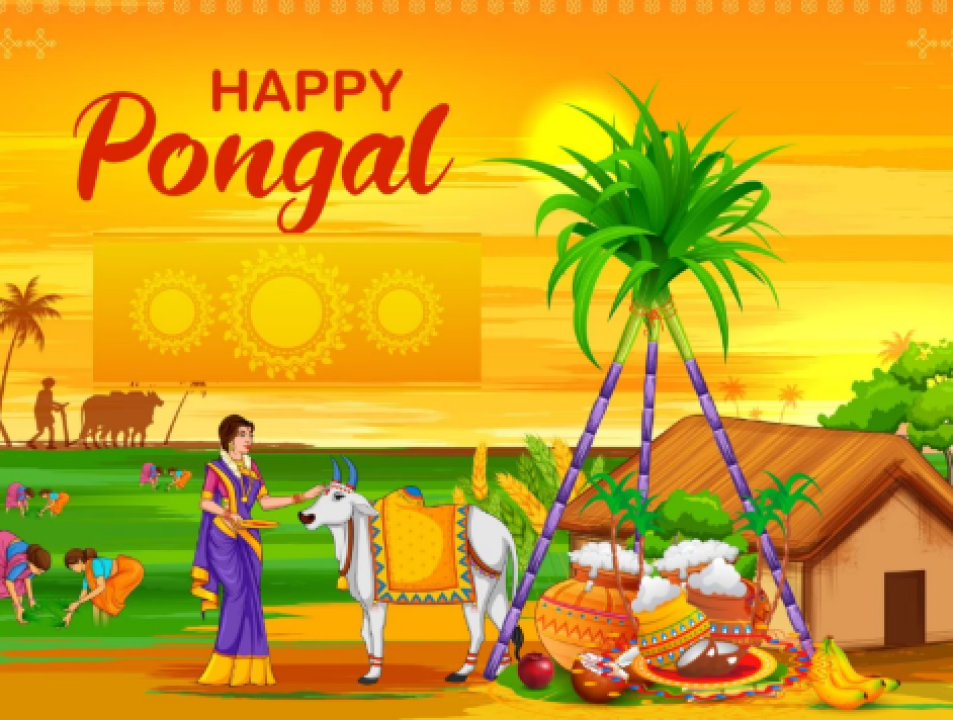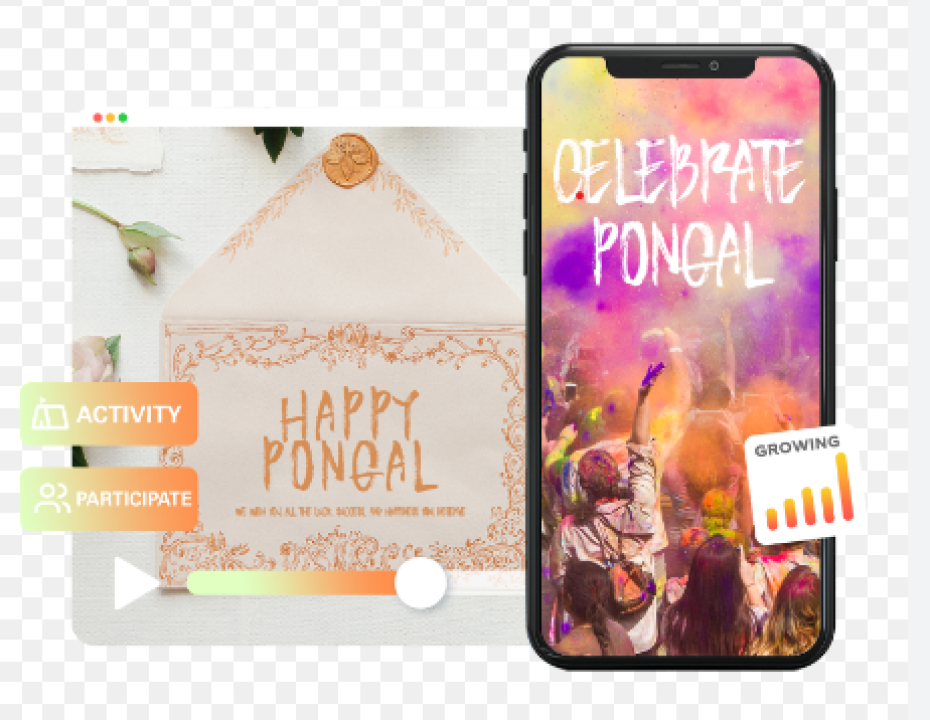
Pongal is the major festival of Tamilnadu and also the most important and popular Harvest Festival of Tamilnadu, dedicated to Sun God, thanking him for the agricultural abundance and is celebrated with great religious fervor. It’s a four-day festival that usually commences on the 14th or 15th day of January every year and is considered as an auspicious occasion to start new ventures.
Bhogi pongal
The first day of pongal is celebrated as a bhogi festival. It’s a day dedicated to cleaning and getting rid of old things. People gather and discard unused items, symbolising the discarding of the old to make way for the new. Bonfires are lit, and there is a sense of renewal in the air as households prepare for the days of celebration ahead.

Surya Pongal
The second day of pongal is celebrated as a Surya Pongal, a primary day of Pongal. On this day, the traditional dish called “Pongal” is cooked. This delicacy is made from newly harvested rice boiled with milk and jaggery, symbolising prosperity and abundance. Families come together to cook and share this dish, offering thanks to the Sun God for a bountiful harvest.

Mattu Pongal
On the third day, Mattu Pongal is dedicated to expressing gratitude to the animals, particularly cattle, which play a crucial role in agriculture. Cattle are adorned with colourful decorations, and special prayers are offered to them. This day acknowledges the significance of these animals in the farming community and expresses gratitude for their hard work.

Kanum Pongal
Some Tamils people celebrate a fourth day called Kanum Pongal, which focuses on spending time with family and friends. It is a day for relaxation and enjoyment, often involving outings and recreational activities.

How is Pongal celebrated in today’s digital age?
Pongal celebrations and greetings have become a seamless part of numerous online social media platforms in the digital age. You can experience the lively atmosphere of Pongal with your loved ones by sending them original and sincere messages, pictures, and videos.
People can send heartfelt greetings to loved ones, by creating personalised messages on social media sites like Facebook and WhatsApp. Sending out celebratory pictures, such colourful Pongal Kolams and traditional Pongal pots, gives the greetings a visual element. Social media stories can also be used by users to upload brief videos of their Pongal celebrations with friends, providing them with a virtual window into the happy occasion. Provide a forum for people to showcase their artwork by posting images of their new Pongal Kolam on social media sites like Instagram, as well as quotes related to the Pongal celebration and also in WhatsApp status. Pongal dishes are shared by a lot of culinary influencers. During the occasion, these recipes assist people in preparing a classic Pongal dish.
Engaging in live video calls through platforms like Zoom or Skype enables people to connect in real time, fostering a sense of togetherness even when physically distant. Hosting virtual Pongal parties, where participants share cooking tips for traditional dishes or engage in online games, can infuse the festive spirit into the digital realm.
Utilising popular hashtags on platforms like Instagram and Twitter allows individuals to join more extensive conversations and connect with a broader community celebrating Pongal. Encouraging others to share their Pongal moments through user-generated content can create a collective celebration online. A simple message to your friends and loved ones wishing them a happy Pongal can go a long way.
In conclusion, the Pongal festival, deeply rooted in India’s diverse cultural fabric, stands as a vibrant celebration of nature’s abundance and the harvest season.
